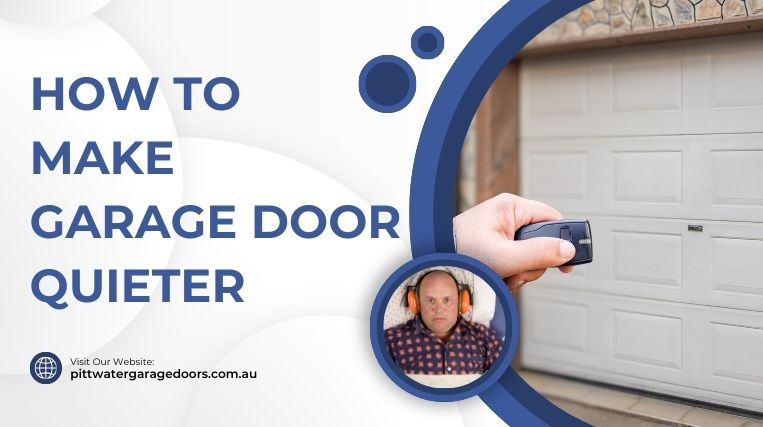Garage doors that squeak, grind and rattle can disturb households day and night. Excessive noise often signals wear, damage or lack of lubrication, causing metal parts to vibrate against each other.
This friction creates unpleasant sounds amplified by the large surface and hollow box-like space.
Preventing minor issues from becoming major repairs starts with regular inspection and servicing. This guide outlines common noise causes and how to diagnose issues and quiet a racketing garage door.
Table of Contents
Tips to Make Garage Doors Quieter
Mentioned below are some tips that can help to make your garage door quieter.
Lubricate Moving Parts
Regularly lubricating the moving metal parts of the garage door, such as rollers, pulleys, cables, and hinges, helps reduce friction and grinding noises. Use a garage door lubricant made specifically for the hardware and moving components.
Properly lubricating parts allows smoother, quieter operation.
Tighten Loose Hardware
Using an appropriate wrench or screwdriver, check and securely tighten any loose screws, bolts or fasteners along the track, on hinges, sensors and other accessories.
This stabilises the door, accessories and hardware, so there’s less opportunity for vibration noises and banging.
Replace Worn Weather Stripping
Inspect the weather stripping surrounding and attached to the door. Any excessively cracked, brittle, missing sections or no longer providing a complete seal should be replaced.
Proper weather stripping blocks outdoor noises and helps muffle noises inside the garage.
Add Insulation
Adding insulation can significantly quieten garage door noise vibrations. Options include replacing door panels with insulated ones, adding an insulation seal kit around the door or insulating the garage space with insulation boards and sealants.
The insulation provides a sound-dampening barrier.
Adjust and Align Moving Parts and Sensors
Make adjustments so the door opens smoothly without grinding or banging noises. Confirm the electric eye sensors are aligned properly and try closing the door manually using automatic openers.
Any inconsistencies in movement or grinding indicate further repairs or adjustments may be needed.
Causes of Noisy Garage Doors
Garage doors can become obnoxiously noisy over time due to various underlying issues. Worn parts, weather damage, lack of lubrication, and loose hardware are common culprits behind a rattling, squeaking door.
We’ve compiled an in-depth guide covering the range of causes and how to pinpoint the source of the noise through methodical inspection and testing.
Check out our article on the causes of a noisy garage door before attempting DIY repairs. Understanding the reasons garage doors become noisy can help guide appropriate solutions.
Takeaway
A noisy garage door can be irritating and disruptive. Excessive noise often indicates wear, damage or lack of maintenance.
Following the tips above to lubricate, adjust and replace parts can often significantly reduce noise. With proper inspection and regular upkeep, your garage door can return to operating smoothly and quietly.
Pittwater Garage Doors provides professional servicing and maintenance to ensure long-lasting, quiet performance and extend the lifespan of your doors.
Our certified technicians thoroughly inspect, lubricate, and adjust all hardware and moving parts, replace worn weather stripping, and diagnose and repair sources of excess noise and vibration.


